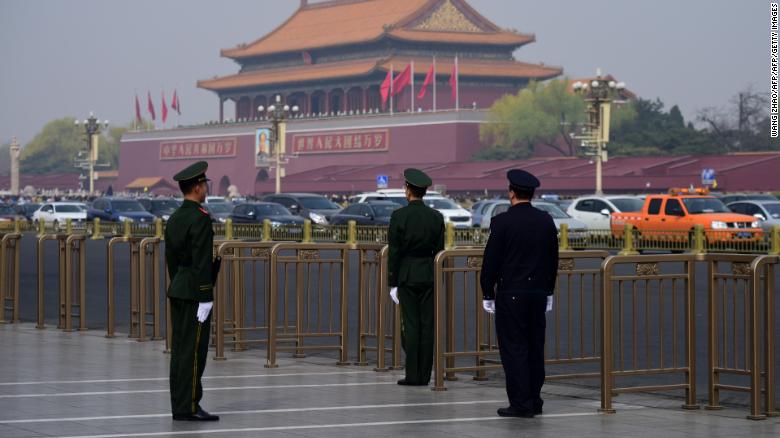
Ben Blanchard, Shu Zhang, Christine Kim BEIJING/SEOUL (Reuters) – North Korean leader Kim Jong Un was part of a secretive delegation that arrived in Beijing by train on Monday and left on Tuesday, according to a source familiar with the matter and foreign media reports. The visit, which would be Kim’s first known journey abroad since he assumed power in 2011, was not announced by North Korea or China and has remained shrouded in mystery. South Korea’s left-leaning Hankyoreh newspaper reported that Kim had traveled to Beijing for meetings with Chinese President Xi Jinping on Monday afternoon before leaving for a “third location”, which could be in China, on Tuesday. It did not cite specific sources. The conservative South Korean Chosun Ilbo newspaper, citing an unnamed senior intelligence official, said the delegation had included Kim, and that he had left to return to North Korea. Kim is due to hold separate summits with China’s rivals, South Korea and the United States, and analysts say a visit to Beijing could be preparation for those. Beijing has traditionally been the closest ally of secretive and isolated North Korea, but ties have been frayed by North Korea’s pursuit of nuclear weapons and China’s backing of tough U.N. sanctions in response.
A Chinese foreign ministry spokeswoman deflected a question on whether Kim, his sister or some other senior North Korean was visiting. “At present I have no understanding of the situation you mention. If there is news we will release it,” foreign ministry spokeswoman Hua Chunying told a regular daily briefing. Diplomatic sources in Beijing said a senior North Korean official was in town, but they did not know exactly who. U.S. Defense Secretary Jim Mattis said it “kinda looked like” Kim went to Beijing, but told reporters at the Pentagon, “I don’t know.” A senior U.S. official who follows North Korea closely said the available evidence suggested Kim had gone to meet Xi, but stressed that has not been confirmed.
U.S. State Department spokeswoman Heather Nauert said China had not confirmed who had visited, but added, “there certainly was a lot of fanfare … a lot of protocol.” “We look forward to hearing about it and we’ll leave it for the Chinese to announce who was visiting,” she told a regular news briefing, adding that the United States was continuing with its plans for a summit with Kim by the end of May. A Reuters reporter saw a convoy leave Beijing’s Diaoyutai State Guest House, where senior foreign leaders often stay, and drive north on Tuesday morning. It was unclear where the convoy was headed. Later, a Reuters journalist saw what was believed to be the delegation’s train pulling out of a Beijing station. The group was reported to have arrived in China on Sunday after crossing from North Korea at the border city of Dandong. One source with ties to China’s leadership said earlier it was possible the visitor was Kim’s younger sister, Kim Yo Jong. She visited South Korea during the Winter Olympics last month, paving the way for a summit between the two Koreas. The U.S. official, who spoke on condition of anonymity, said it was unlikely Kim Jong Un would have again sent his sister given the importance of a meeting with Xi, which would underscore Kim’s standing as a world leader. South Korean news agency Newsis reported that Kim Yo Jong and the North’s ceremonial leader, Kim Yong Nam, were visiting Beijing, citing an unidentified North Korea-related source in the Chinese capital.
“LOT OF LEVERAGE”
The U.S. official said Xi and Kim Jong Un had reason to meet in advance of Kim’s meetings with South Korean President Moon Jae-in in April and possibly U.S. President Donald Trump in May. “Xi has met Trump, and in many respects learned how to deal with him better than some people here do,” the official said. “At the same time, despite the recent tensions, he needs to know what Kim has in mind for dealing with the South and the U.S., and he still has a lot of leverage with the North.” A senior South Korean official said improving ties between North Korea and China would be a positive sign before the planned summits. In Geneva, meanwhile, North and South Korean members of parliament shook hands and shared a toast to “peace” on Tuesday, a Reuters witness said, suggesting relations between their two countries are thawing. South Korean politician Young Chin shook hands with Ri Jong Hyok, director of North Korea’s National Reunification Institute and deputy head of its Supreme People’s Assembly, at the annual assembly in Geneva of the Inter-Parliamentary Union.



